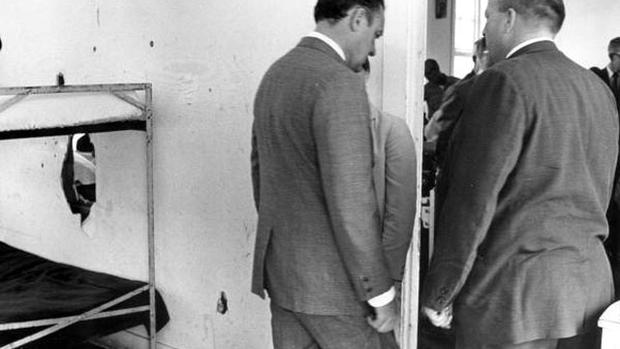Researchers finish 1st phase of Fla. school grave excavations
MARIANNA, Fla. Researchers unearthed the remains of two children buried at a former reform school that had a history of extreme abuse, and the bones will be analyzed in hopes of identifying the children and determining how they died, the anthropologist leading the excavation said Tuesday.
Based on the size of the remains, the children probably were between the ages of 10 and 13 when they died, said Erin Kimmerle, the University of South Florida professor who is heading the project to exhume an estimated 50 graves.
The remains were buried close to each other, but one had a very elaborate coffin and the other was plain, Kimmerle said. The coffins were different sizes and one was found a little less than 1.5 feet below the surface and the other more than 2.5 feet below the ground.
"It probably reflects a very different period in time and different people involved in the burial," she said.
The work at the now-closed Arthur G. Dozier School for Boys began Saturday. The school opened in 1900 and closed in 2011 for budgetary reasons. Former inmates from the 1950s and 1960s have detailed horrific beatings and abuse at the school.
On Tuesday, researchers were restoring the area they dug. The remains will be brought to Tampa, where they'll be studied.
DNA from the remains will be sent to the University of North Texas Center for Human Identification for analysis. The hope is that it can be matched to relatives. Ten families have contacted researchers in hopes of identifying relatives that might be buried at Dozier.
Based on the art deco style of the more elaborate coffin, Kimmerle said she believes it was made sometime after the 1930s. Shroud pins were found with the remains, meaning the child was wrapped in a shroud before he was buried. Buttons were found with the other set of remains. There wasn't enough information to estimate when that child was buried.
The team will return to the area in the fall to excavate the other graves. The four days of work was done in part to work out logistics on how to complete the project.
Families of any children identified through the research will be able to claim the remains and bury them in family plots. Files will be kept of any unidentified remains and they will be reinterred where they were found.
USF will also look for any other areas where people might be buried.
"We have some additional areas that we're interested in searching and winter months are best because if you're checking out in the woods you don't want the vegetation," Kimmerle said.
